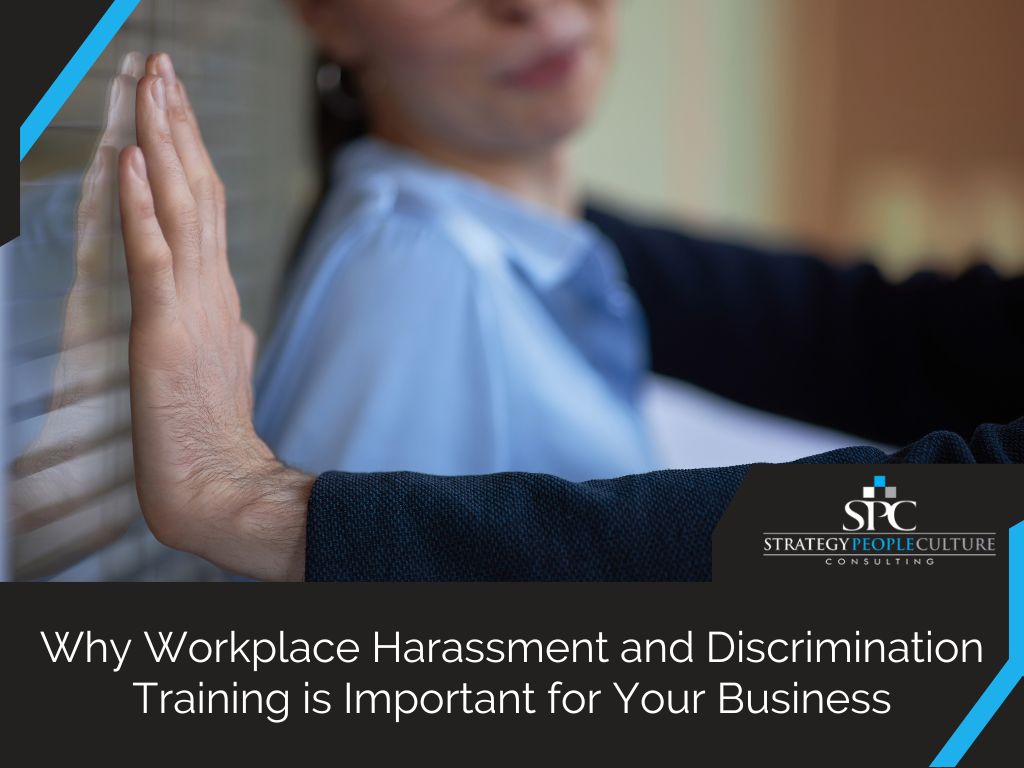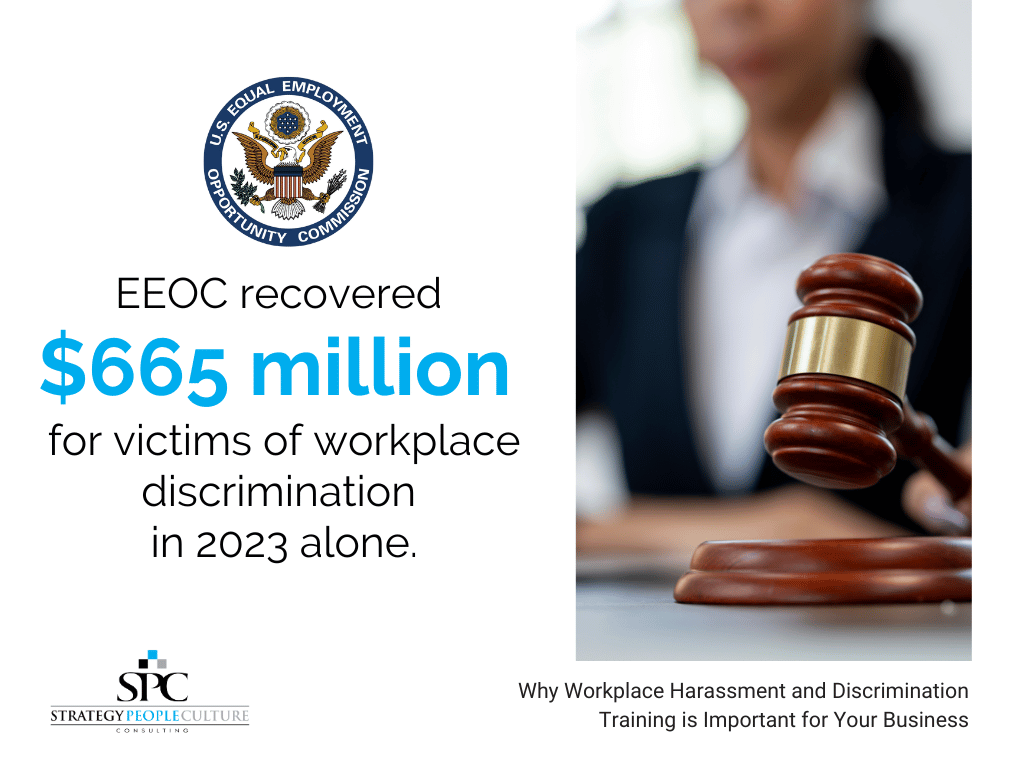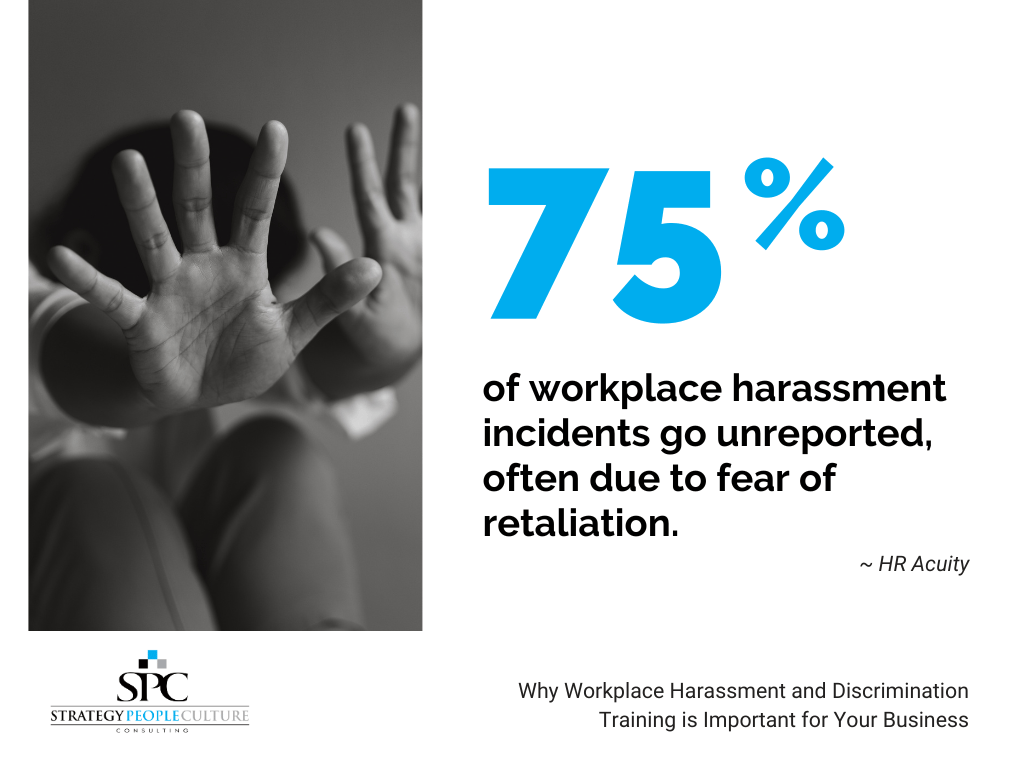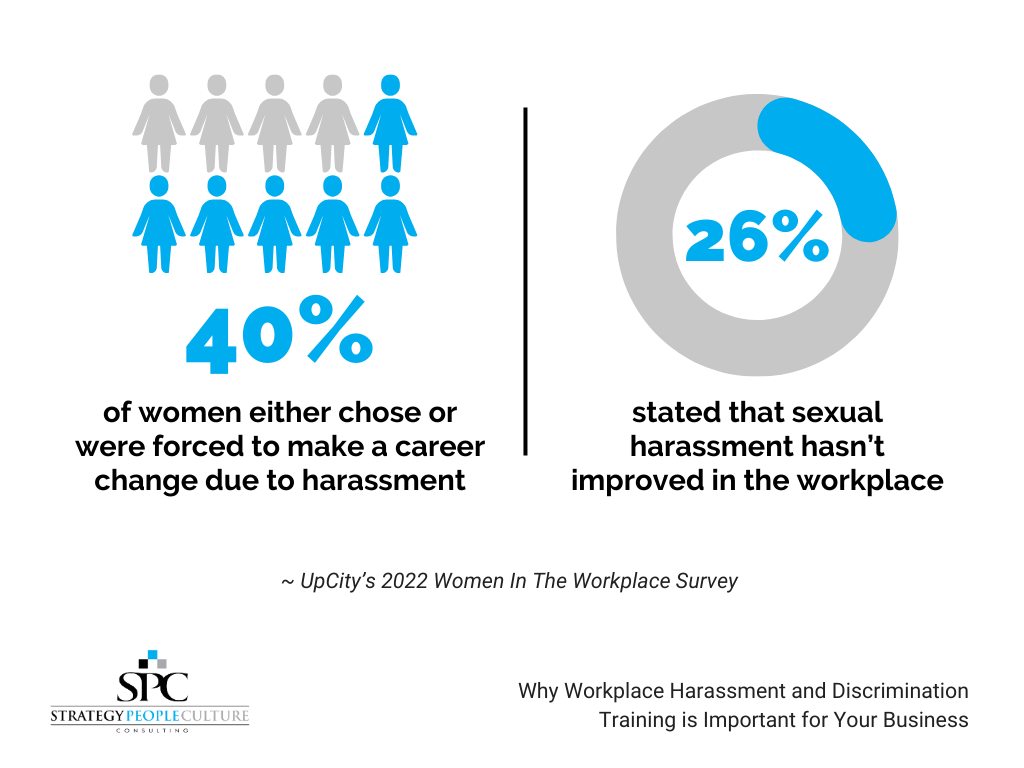Why Workplace Harassment and Discrimination Training is Important for Your Business

Workplace harassment and discrimination aren’t just legal issues—they’re leadership challenges that affect the very core of your business. Failure to address these concerns can lead to far-reaching consequences, from damaged reputations to financial loss. More than ever, today’s workforce demands a culture of respect, inclusivity, and safety. Companies that fail to implement proper training risk undermining employee morale, productivity, and profitability.
The importance of creating a safe, ethical workplace is underscored by alarming statistics. A recent survey revealed that 52% of U.S. employees have experienced or witnessed inappropriate, unethical, or illegal behavior at work, with the most common issues being bullying (51%), sexual harassment (40%), and racism (30%). These numbers demonstrate the pervasive nature of these issues and highlight the need for robust, proactive training to protect both employees and the business itself.
The Financial Costs of Workplace Harassment & Discrimination
Ignoring workplace harassment and discrimination doesn’t just expose your company to moral or ethical risks—it also opens the door to costly legal and financial consequences.
Direct Costs: Lawsuits, Settlements, and Fines

One of the most immediate financial impacts of neglecting harassment training is the burden of lawsuits and settlements. Companies that don’t enforce proper policies and training often face steep legal fees and fines. For example, the Equal Employment Opportunity Commission (EEOC) recovered $665 million for victims of workplace discrimination in 2023 alone. Additionally, the average settlement for employment discrimination claims is about $40,000, but certain cases can result in even higher costs due to reputational damage and prolonged legal battles.
Indirect Costs: Turnover, Absenteeism, and Low Morale
The indirect costs of harassment and discrimination, such as employee turnover, absenteeism, and reduced productivity, can also strain a company’s finances. High turnover rates often mean expensive hiring and training processes, while poor employee morale caused by unresolved issues further decreases productivity. Employees who feel unsafe or disrespected are less likely to contribute to team success, undermining both morale and profitability.
Legal Obligations and Compliance

Businesses must also be aware of the legal landscape regarding workplace harassment and discrimination. In the U.S., employers are required to comply with laws like Title VII of the Civil Rights Act, which prohibits employment discrimination based on race, color, religion, sex, and national origin. Additionally, the CROWN Act, which prohibits discrimination based on hair texture and style, is expanding at the State level, further emphasizing the need for inclusive workplaces.
By implementing thorough training, businesses not only comply with these legal obligations but also protect themselves from legal exposure. Failure to do so could lead to severe fines, penalties, and long-term reputational damage.
Why Harassment and Discrimination Training Is Important for Your Employees

Fostering a Safe and Respectful Work Environment
Employees must feel protected and valued by their leadership. Implementing comprehensive harassment and discrimination training shows a company’s commitment to creating a safe, respectful workplace, ensuring that harassment is not tolerated. By doing so, employers foster an environment where every employee can thrive.
Empowering Employees to Recognize and Report Issues

Training equips employees with the knowledge to identify and report inappropriate behavior. According to HR Acuity, “A staggering 75% of workplace harassment incidents go unreported, often due to fear of retaliation.” By empowering employees to come forward without fear, companies can foster a culture of transparency and accountability.
Encouraging Inclusive Collaboration and Teamwork
A culture of respect and inclusivity enhances collaboration and teamwork. Employees who feel safe are more likely to share ideas, participate in discussions, and contribute to innovation. This leads to better decision-making and creativity, driving business growth.
Employee Well-being and Mental Health
Workplaces free from harassment improve employee well-being and reduce stress. Employees who aren’t worried about facing discrimination or harassment are more engaged, focused, and motivated. In turn, this leads to higher retention rates and reduced absenteeism, positively affecting overall company performance.
Strengthening Company Culture and Employee Retention

Training as a Leadership Tool
Harassment and discrimination training are not just about compliance—they are critical tools for leadership development. When managers and executives participate in training, they cultivate empathy, emotional intelligence, and integrity, all of which are essential leadership qualities.
Improving Employee Trust and Loyalty

Respectful workplaces lead to greater employee trust and loyalty. In fact, toxic work environments contribute significantly to high turnover rates. UpCity’s 2022 Women In The Workplace Survey shows that 40% of women either chose or were forced to make a career change between 2020 and today due to harassment, and 26% stated that sexual harassment hasn’t improved in the workplace.
By fostering an inclusive environment, businesses can reduce turnover and increase employee retention, ultimately improving team performance and reducing the costs associated with hiring and training.
Enhancing Your Brand and Reputation
Your company’s stance on harassment and discrimination significantly impacts its external reputation. Companies known for maintaining an inclusive, respectful culture are more attractive to top talent and retain more loyal customers. Moreover, businesses that are transparent about addressing these issues tend to build stronger, more forward-thinking brands. By addressing workplace harassment proactively, you can improve public perception and attract high-caliber talent who want to work in positive environments.
The Role of Executives in Driving Change

Leadership plays a crucial role in fostering a culture of inclusivity and respect. Executives should go beyond merely approving harassment and discrimination training—they should actively champion it. When leadership demonstrates a commitment to these values, it creates a trickle-down effect, embedding accountability and inclusivity throughout the entire organization. This kind of top-down commitment makes it clear that harassment prevention is a core part of company culture, not just a compliance measure.
Conclusion: It’s Not Just a Box to Check—It’s a Strategic Investment
Workplace harassment and discrimination training is more than just a compliance obligation—it’s a strategic investment that protects your business, strengthens company culture, and enhances employee well-being. By prioritizing this training, your business can minimize legal risks, improve retention, and foster a positive, productive workplace.
Ready to safeguard your business from harassment risks?
Book a free consultation today to assess your current training initiatives and learn how to optimize your approach for long-term success.
